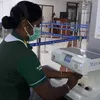This AI + IoT SaaS solutions startup has repurposed its existing tech to suit COVID-19 times
Gaia uses IoT, AI/ML, ICT solutions that can be deployed in hospitals, railways and essential services like fresh foods and farmer industries. The startup also repurposed its existing platform to help the Agra city authorities deliver emergency response services.
The COVID-19 pandemic and the ‘new normal’ have changed the way we do things - from everyday activities like grocery shopping to how large industries function. With heightened hygiene and sanitation measures in place and physical distancing measures to adhere to, industrial activities and workplaces have had to undergo a sea change to ensure health measures are in focus.
The new normal has also led to increased demand for digitisation and automation in various processes that were earlier done manually.
One such startup that has been helping automate workflow and digitally enhance capabilities for built environments across industry verticals even before the pandemic hit is . It is a horizontal SaaS product startup that uses IoT, AI and SaaS solutions for managing a smart workforce, smart workflows, and customer experience.

Gaia co-founders Amrita Chowdhury and Mayuri Naik. (Image source: Gaia)
“At the core, we are a tech startup. We started out as an IoT company, and very soon became an IOT and insights company. We then realised insights were not enough so we brought in a lot of AI and machine learning based algorithms at the both the device and cloud levels for allocation, orchestration, optimisation and so on. Again, we realised that even that was not enough and that we need to help our clients close the loop,” says Amrita Chowdhury, one of the six co-founders of the startup founded in 2015.
Today, the startup provides solutions for Smart Sites and Smart Cities, blending IoT, ICT, AI/ML, and analytics to provide insights. It has successfully implemented managing of multi-location and multi-parameter metrics at sites across industries including facilities, buildings and campuses, transport hubs, airports, railways, metro stations, warehouses, cold chains, cold logistics, hospitals, retail, city infra, and city public spaces. It also works in closely with the Ministry of Urban Development (MoUD) as an integral part of the National Project Management Unit (PMU) of the Swachh Bharat Mission.
Help during the pandemic
During the pandemic, Gaia’s solutions are being used at six hospitals keeping a check on hygiene and sanitation standards, and workforce management and patient-experience management on a daily basis. The startup has deployed these across hospitals in Raipur, Mumbai, Ahmedabad, Delhi, and Patna.
“More than ever, during the pandemic, it has become extremely critical for hospitals and they use it as a holy grail,” says Mayuri Naik, another co-founder of the startup who is in charge of operations and product line services and software.
The startup also repurposed its existing tech to help the Agra city authorities during the pandemic to deliver emergency response services to the citizens’ doorstep.
“We were able to provide doorstep delivery of citizenship services through a simple app which we connected to the our Workforce Management and Service Orchestration and the city authorities were able to deliver emergency services to the citizens. This was a complete one week turnaround for Agra during COVID-19 and we have implemented multiple interventions within record time using our existing platforms to enable citizens and the city to connect for emergency services,” says Mayuri, who has over 20 years of global experience in telecom, IT, e-learning, design, advertising, and multimedia.
Amrita, who handles the business side of the startup says its automation platform has also been providing services to the Indian Railways for over a year now. Its solutions are also deployed in various fresh foods and farmer industries which are categorised under essential services.
The startup journey
The penetration of technology into every business sector and its influence in enhancing built environments – large or small – prompted the founders to start Gaia.
“A lot of tech inclusion started happening in different parts of the built environments and around the time we started, the Smart Cities Mission was also coming into play, but more than that there has been development in how technology can help in space and facilities management,” says Amrita.
Gaia has a six-member team of founders - Sumit Chowdhury, Amrita Chowdhury, Mayuri Naik, Bipin Pradeep Kumar, Prasun Agarwal and Nijesh Kadakia.

Gaia founders Sumit Chowdhury, Amrita Chowdhury, Bipin Pradeep Kumar and Mayuri Naik. (Image source: Gaia)
“We joined forces to see how we can use technology to transform the ecosystem of buildings and inside buildings like assets, people, operations, processes to make it seamless,” adds Amrita.
Since its inception, Gaia has served over 60 client entities and recently opened a branch in the US and is steadily planning to expand in the global market.
The startup journey has also been riddled with several challenges. Amrita explains that they faced field challenges like power disruption, signal disruption, low network areas, environmental wear and tear of hardware. Clients would want them to repair everything, which meant that they couldn't just be an IoT and analytics company but also had to include management services to help customers.
Mayuri adds that they also had to deal with standard challenges like building the right team, attracting the right talent, staff training, funding, cashflow challenges and more while building the startup.
Future plans
Amrita says that the startup is very optimistic about the future despite the pandemic as it is seeing a conversation shift towards digital transformation and digital operation as it onboards new clients. She believes the current distancing measures and health requirements will push the need for automation of processes and people and a lot of dynamic orchestration of tasks that the startup can provide.
She also adds that the startup has a two-fold future growth plan - one is to grow in India and also expand in the global market.
Edited by Rekha Balakrishnan









